Board of Directors
Role and function
The Board of Directors makes decisions jointly and is assisted by Board committees in special cases. The Board’s primary function is to provide guidance and exercise control over the Group; it makes strategic decisions and defines the general means for achieving the goals it has set for the company, sets the General Meeting agenda and approves the annual and half-year reports, as well as the Compensation Report. Decisions regarding the appointment of members to Group Management, or the former Extended Group Management, managing directors of subsidiaries, as well as resolutions on shareholders’ motions from the General Meeting, will be made by the full Board.
Members
The Board of Directors of Chocoladefabriken Lindt & Sprüngli AG consists of at least five and not more than nine members according to article 17 of the Articles of Association. If the number of members falls below five, the minimum membership must be restored at the next ordinary General Meeting. As of December 31, 2016, the Board had six active members. Ernst Tanner is Executive Chairman of the Board since October 1, 2016; all other members are non-executive members.
* Until 30 September 2016 Delegate of the Board of Directors/CEO
** Until 30 September 2016 member of the Board of Directors and Lead Director
Antonio Bulgheroni was Managing Director of the Italian subsidiary Lindt & Sprüngli SpA until his retirement in April 2007. No other Board members were actively engaged in the management of the Group or a subsidiary; none had other business relations with any entity within the Group in the past three years.
Members of the Board of Directors were individually elected by shareholders at the General Meeting for a one-year term of office (until the next General Meeting). No limitation is placed on their re-election. If a member leaves, or if an elected member subsequently declines the appointment, the seat concerned remains vacant until the next General Meeting.
In this reporting year, all Board members have been re-elected for terms of one year respectively newly elected until the conclusion of the next planned General Meeting.
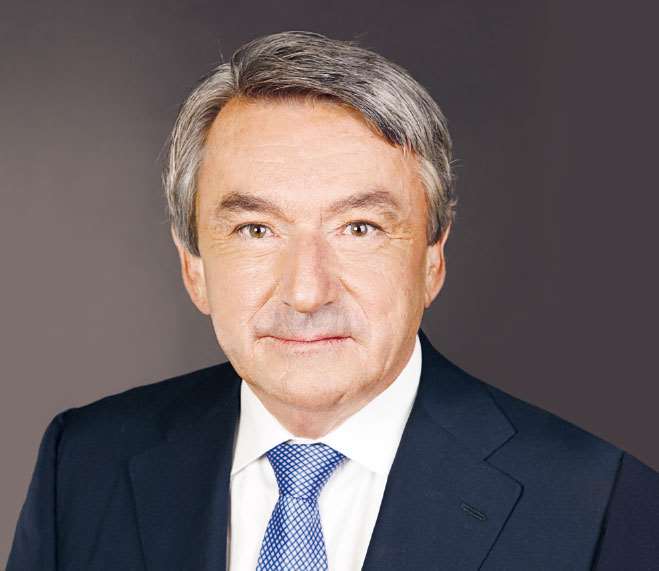
Ernst Tanner (CH) Mr. Tanner was elected CEO and Vice Chairman by the Board of Directors in 1993. In 1994, he became Chairman of the Board. He completed a commercial education and then attended business school in London and at Harvard. Before joining Lindt & Sprüngli, Mr. Tanner held top management positions for more than 25 years with the Johnson & Johnson Group in Europe and in the USA, last as Company Group Chairman Europe. Mr. Tanner has been a member of the Board of Directors of the Swiss Swatch Group since 1995, Vice Chairman of the Board of Directors since 2011, as well as member of the Compensation Committee since 2002 and Chairman of this Committee since May 2014. He also has a seat on the Advisory Boards of both the German Krombacher Brauerei GmbH & Co. KG and the Austrian SIGNA Group. As of September 30, 2016, Mr. Tanner resigned as CEO and is since then Executive Chairman of the Board of Directors.
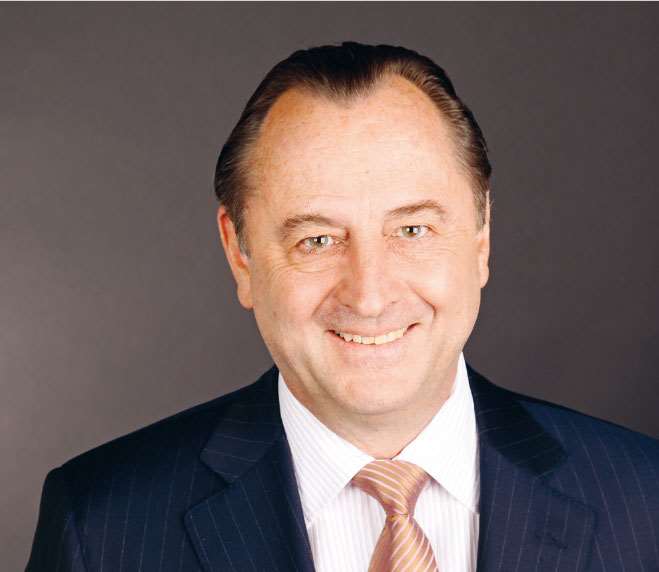
Dr Rudolf K. Sprüngli (CH) Mr. Sprüngli completed his studies with a doctorate in economics and has been a member of the Board of Directors since 1988. Due to his former executive activities for the Group and for an international premium food-trading company, Mr. Sprüngli is an expert authority in the chocolate business. Today, he manages his own consulting firm. Mr. Sprüngli is also a member of the Council of the British-Swiss Chamber of Commerce, a member of the Board of Directors of Peter Halter Liegenschaften AG, a Board member at the lnstitut für Wirtschaftsberatung as well as Chairman of Freies Gymnasium Zurich.
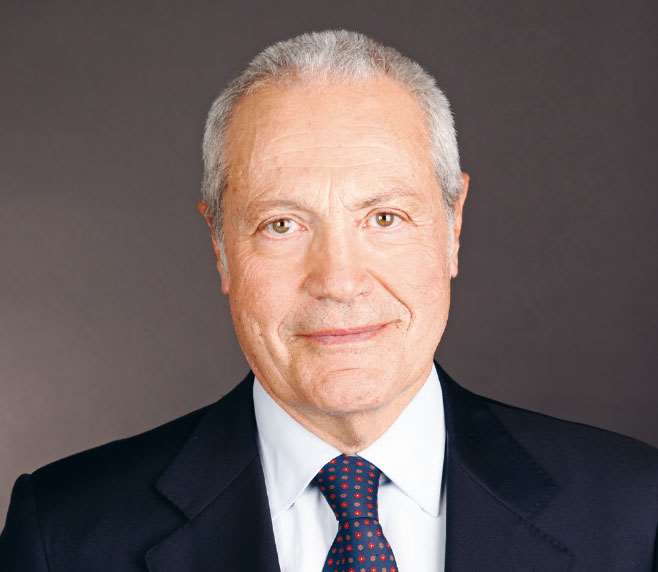
Antonio Bulgheroni (IT) Mr. Bulgheroni has been a member of the Board of Directors since April 1996 and Lead Director from February 2009 until end of September 2016; he currently serves on the Executive, Audit, and Compensation Committee. His extensive company management experience in every area of the chocolate business makes Mr. Bulgheroni a highly respected international expert. He was CEO of Lindt & Sprüngli SpA from 1993 until his retirement from executive directorship in April 2007. Since then, he has been Chairman of the Board of Lindt & Sprüngli SpA and Caffarel, the two Italian subsidiaries of the Group. Mr. Bulgheroni, who holds the Order of Merit for Labor of the Italian Republic, is the Vice President of Banca Popolare di Bergamo and holds other directorships, including Il Sole 24 Ore and the L.I.U.C. University, as well as the Chairman of the Board of Directors of Bulgheroni SpA.
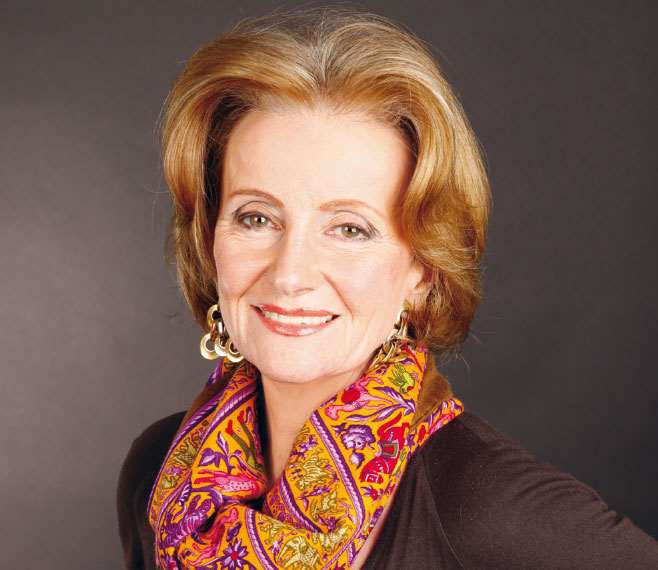
Dkfm. Elisabeth Gürtler (AT) Ms. Gürtler has been a member of the Board of Directors since 2009. She completed her business-science studies with a master’s degree, then built up an outstanding reputation, particularly as director of the world-famous Sacher Hotels in Vienna and Salzburg, where premium quality plays a key role. From 1998 till 2012, Ms. Gürtler was a member of the Supervisory Board of Erste Group Bank AG. She was a member of the general council of the Austrian National Bank from 2004 to 2014 and is currently member of the Board of Directors of ATP Planungs- und Beteiligungs AG in Innsbruck, as well as serving on the Advisory Board of the Nürnberger Lebensversicherung (Nürnberg Life Insurance) in Germany.
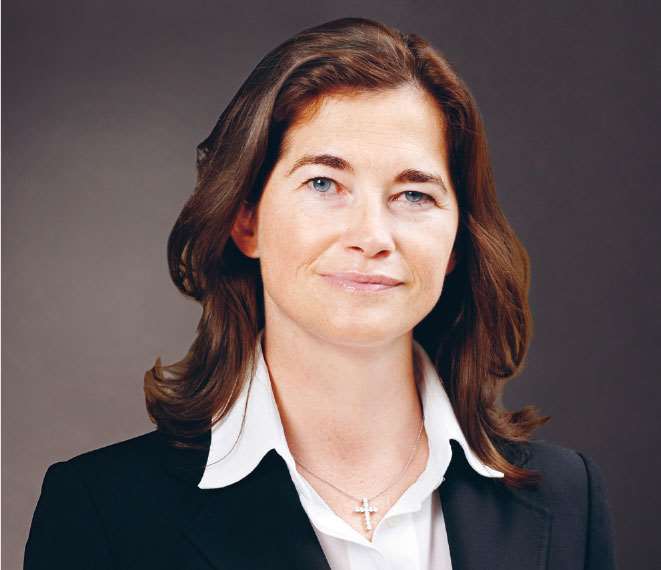
Petra Schadeberg-Herrmann (D) After periods of study in Paris and London, Ms. Schadeberg-Herrmann completed her studies at the European Business School in Germany in 1990 with a degree in business management. She has been employed by the Krombacher Brewery Group of Companies (the leading German beer market brand) for more than 20 years and is currently a managing partner. Ms. Schadeberg-Herrmann is active primarily on the financial and commercial side. Among her other duties as managing partner, she is in charge of Krombacher Finance GmbH. In June 2011, she was elected to the Supervisory Board of Krones AG, the world’s leading manufacturer for filling and packaging technology in the beverage and liquid food industries.
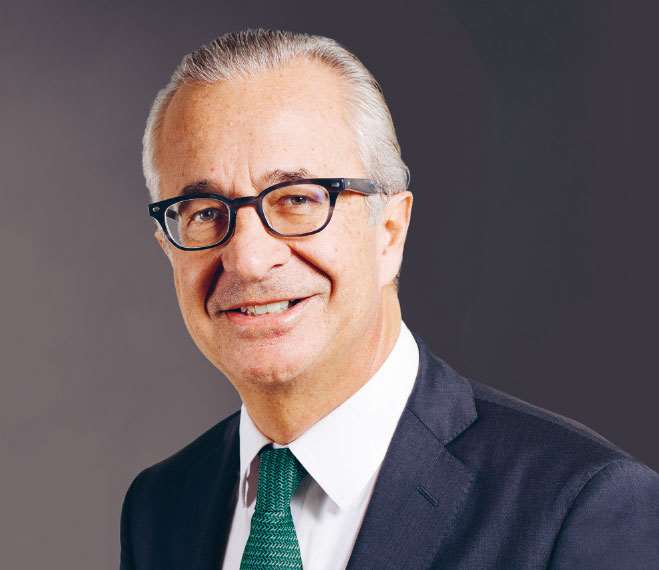
Dr Thomas Rinderknecht (CH) Mr. Rinderknecht has a PhD in law and was admitted to the Bar in the Canton of Zurich in 1982. From 1984 onwards he worked as a freelance commercial attorney before becoming Senior Partner with the law firm Badertscher Rechtsanwälte AG, Zurich and Zug. Since 1984 Mr. Rinderknecht has had numerous directorships on the boards of various unlisted companies in the healthcare/pharmaceutical/biotech branches and in the media, as well as in the industrial sector. Since 2011, he has also been a member of the Board of Directors and the Audit Committee of Basilea Pharmaceutica AG. With his background as a commercial attorney, Mr. Rinderknecht’s legal expertise is of particular benefit to the Board of Directors.
Number of activities permitted outside the Group
The number of mandates in senior managing bodies and boards of directors of legal entities – which are to be entered in the Swiss commercial register or in a comparable foreign register outside the Group – is restricted for the members of the Board of Directors to: four mandates in listed companies, ten mandates in non-listed companies, and fifteen mandates in other legal entities, such as foundations and associations according to article 19, paragraph 3 of the Articles of Association.
Internal organization
The Ordinary General Meeting elects together with the members of the Board of Directors the Chairman of the Board of Directors and the members of the Compensation Committee. In other respects, the Board of Directors remains self-constituting.
If the chairmanship is abandoned prematurely, or if the chairman is dismissed from the Board of Directors, or retires from the Board before ending the term of office, the Board of Directors can appoint an interim chairman from among its members until election at the next General Meeting. Should one or more members of the Compensation Committee retire early, the Board of Directors can appoint substitutes from among its members until the next General Meeting.
The Chairman presides over the General Meeting, represents the company in dealings with third parties and provides together with the CEO, Members of Group Management and Members of Extended Group Management (consolidated with Group Management as of January 1, 2017) timely information for the Board of Directors on all matters important for decision-making and the monitoring of significant Group concerns. He is responsible for preparing all matters to be dealt with by the Board of Directors, placing them on the agenda, and for convening and chairing Board of Directors’ meetings. In addition, the Executive Chairman of the Board of Directors assumes the following tasks:
The CEO is entrusted with the task of managing the business jointly with Group Management and reports directly to the Executive Chairman of the Board of Directors. The CEO presides Group Management and decides in close collaboration with the Executive Chairman of the Board of Directors on the most important matters. Further details about the tasks of the CEO, the Group Management and the former Extended Group Management are found here.
The Board of Directors has also appointed a non-executive member from its ranks to serve as the Lead Director. The Lead Director has the responsibility to ensure the independence of the Board of Directors towards Chairman and CEO if both these functions are held by the same member of Board of Directors. If necessary, the Lead Director himself has authority to convene and chair a meeting of the Board of Directors without the attendance of the Chairman and CEO. He must notify the outcome of any such meeting to the Chairman and CEO. With the termination of the double function of Mr. Ernst Tanner as Chairman and CEO/Delegate of the Board as of September 30, 2016 the task of the Lead Director is also terminated.
The Board of Directors meets regularly – as often as business requires – but at least four times a year. Meetings are convened by the Chairman, or by another member of the Board of Directors appointed to represent him. Each member of the Board of Directors is authorized to ask for a meeting to be convened without delay; the purpose must be stated. The Chairman or, in his absence, another member of the Board of Directors authorized to represent him, presides over the meeting. Along with members of the Board of Directors, the meetings may also be attended by members of Group Management, Extended Group Management and other non-members. In the year under review, four regular and one extraordinary meeting were held; all members were present. The regular meetings lasted for four to five hours. The extraordinary meeting lasted for one to two hours. Members of Group Management regularly attended these meetings, in compliance with exclusion principles. No external consultants took part in meetings of the Board of Directors.
Committees of the Board of Directors
The Chairman of the Board of Directors and the Board of Directors are assisted in their work by three committees: the Audit Committee, the Compensation & Nomination Committee and the Corporate Sustainability Committee. The Board of Directors may decide at any time – through a majority decision – to set up further committees. Until that time, all other tasks of the Board of Directors will continue to be performed by the whole Board of Directors.
Audit Committee
The Audit Committee consists of at least three non-executive, independent members of the Board of Directors. Of these, at least two – among them the Chairman – must possess substantial experience in finance and accounting. The CFO has a consultative vote in the committee. As of December 31, 2016, members of the Committee were: Dr Thomas Rinderknecht (Chairman), Antonio Bulgheroni, and Petra Schadeberg-Herrmann. The members of the committee possess sufficient experience and professional knowledge in the areas of finance and risk management to enable them to perform their tasks effectively.
The Audit Committee supports the Board of Directors in its function of strategic supervision, particularly in main audit areas, complete presentation of the financial statements/audit findings, compliance with statutory requirements and the services of external auditors. In addition, the committee assesses financial reporting expediency and internal control systems and ensures ongoing communication with external auditors. It also constantly scrutinizes the Group’s risk management principles and appropriateness of risks taken, especially in the areas of investments, currencies, raw material procurement, and liquidity.
The Audit Committee makes recommendations to the Board of Directors for important decisions in areas discussed above, such as approval of risk management principles, adoption of the annual accounts statement, or proposals for the appointment of the statutory auditor. The committee itself has no decision-making powers. It may, however, decide independently to entrust the auditor with special assignments and approve the fee budget for audit tasks submitted by the external auditors.
The committee meets as often as business requires, but at least four times a year. In 2016, four regularly scheduled meetings and one extraordinary meeting were held; all members were present.
The meetings generally lasted between one and two hours, with members of Group Management regularly attending. Auditors attended meetings of the Audit Committee on one occasion. Auditors’ direct access to the Audit Committee is guaranteed at all times. No external consultants took part in meetings of the Board of Directors in the year under review.
Compensation & Nomination Committee
The Compensation & Nomination Committee consists of three non-executive members of the Board of Directors, each of whom was elected in the year under review by the general meeting for a term of office of one year until the end of the next ordinary general meeting. As of December 31, 2016, Committee members were: Dr Rudolf K. Sprüngli (Chairman), Antonio Bulgheroni, and Dkfm. Elisabeth Gürtler.
Information on responsibilities of the Compensation & Nomination Committee see Compensation Report
Corporate Sustainability Committee
The Corporate Sustainability Committee consists of three members from the Board of Directors. These may be both executive and non-executive members of the Board. The CFO attends the meetings. As of December 31, 2016, Committee members were: Dr Rudolf K. Sprüngli (Chairman), Antonio Bulgheroni, and Ernst Tanner.
The Corporate Sustainability Committee supports the Board of Directors in setting the strategic direction for company activities, while aiming for comprehensive sustainable management. It is also responsible for the development and adaption of all globally valid corporate policies in this area and monitors compliance in legal aspects. The committee has a preparatory, as well as consultative role. It meets as often as business requires, at least once a year. One regularly convened meeting took place in the year under review and lasted about two hours. The CFO attended this meeting. No external consultants were present at this meeting.
Allocation of competences
The essential principles for allocating the competences and responsibilities among the Board of Directors and Group Management are set forth in the organizational regulation. Below is a summary of the basic principles:
Board of Directors
The Board of Directors has assigned the management of day-to-day business to the CEO and Group Management. They were supported by the Extended Group Management until end of 2016.
CEO
The CEO is the Chairman of Group Management and responsible for procurement and forwarding of information to Group Management, Extended Group Management, Executive Chairman of the Board of Directors, and members of the Board of Directors. The CEO must also ensure that the decisions and instructions of the Board of Directors are executed by Group Management and Extended Group Management. Last, but not least, he is responsible for managing the operational business of the Group within the framework of its strategic objectives and for planning the overall business and reporting within the Group.
Group Management
Group Management is responsible for implementation of Group strategies. In addition, individual members of Group Management must lead their allocated functional and responsibility areas within the framework of the Group policy in compliance with instructions given by the CEO and the Executive Chairman of the Board of Directors. On the basis of a matrix structure, individual Group Management members are given line responsibility for entire country organizations and geographical areas, together with functional responsibility for specific areas.
For details on members of Group Management
Extended Group Management
Members of Extended Group Management performed until end of 2016 the duties entrusted to them by the Chairman of Group Management or by members of Group Management in the area of country/market responsibility (supervising foreign subsidiary companies and providing services for them) and/or functional responsibility. Members of Extended Group Management may have assumed additional responsibility in the capacity of Managing Director/CEO of a subsidiary company, or at Group level with pure market/country responsibility and/or functional responsibility. As of January 1, 2017 Group Management and Extended Group Management were consolidated.
Information and controlling instruments
The Board of Directors is kept regularly informed of all important matters relating to the Group’s business activity. The CEO and members of Group Management attend Board of Directors’ meetings and report on new business developments, important projects and events. Extraordinary occurrences are immediately called to the attention of the members of the Board of Directors. To obtain an accurate and direct picture of local market situations, the Board of Directors regularly visits national companies and meets with local business management.
The Board of Directors is kept informed in writing on a regular basis through an extensive and complete Management Information System (MIS) covering profit and loss, balance sheets, cash flow, investments and personnel, of the Group and the subsidiaries. The information is provided on both a historical basis and as a year-end forecast.
Furthermore, members of the Board of Directors receive, on an annual basis, a detailed overall budget, together with a three-year medium-term plan with forecasts for future development of individual subsidiaries and the consolidated group of companies, covering the income statement, profit and loss, balance sheet, cash flow, investments, and personnel. An annually updated Group-wide analysis of strategic, operational, and financial risks – including valuations, actions taken to limit risks and responsibilities – is also presented.
To enable assessment of Group risk parameters, the Audit Committee also receives a quarterly report on securities and cash investments, currencies, raw material procurement, and liquidity (risk control reporting). Members of Group Management regularly attend Audit Committee meetings. The Group has no internal audit department; thus, the internal financial control system, management information and risk management reporting of the Group is given very special attention.
Each year, a report is submitted to the Audit Committee on the internal financial control processes in the various corporate functions of subsidiary companies (IT, Procurement, Production, Sales, Salary payments, Treasury, HR, and Financial Reporting). Within the framework of the yearly audit, the auditors may be charged with special assignments, which go above and beyond legal and statutory requirements.
